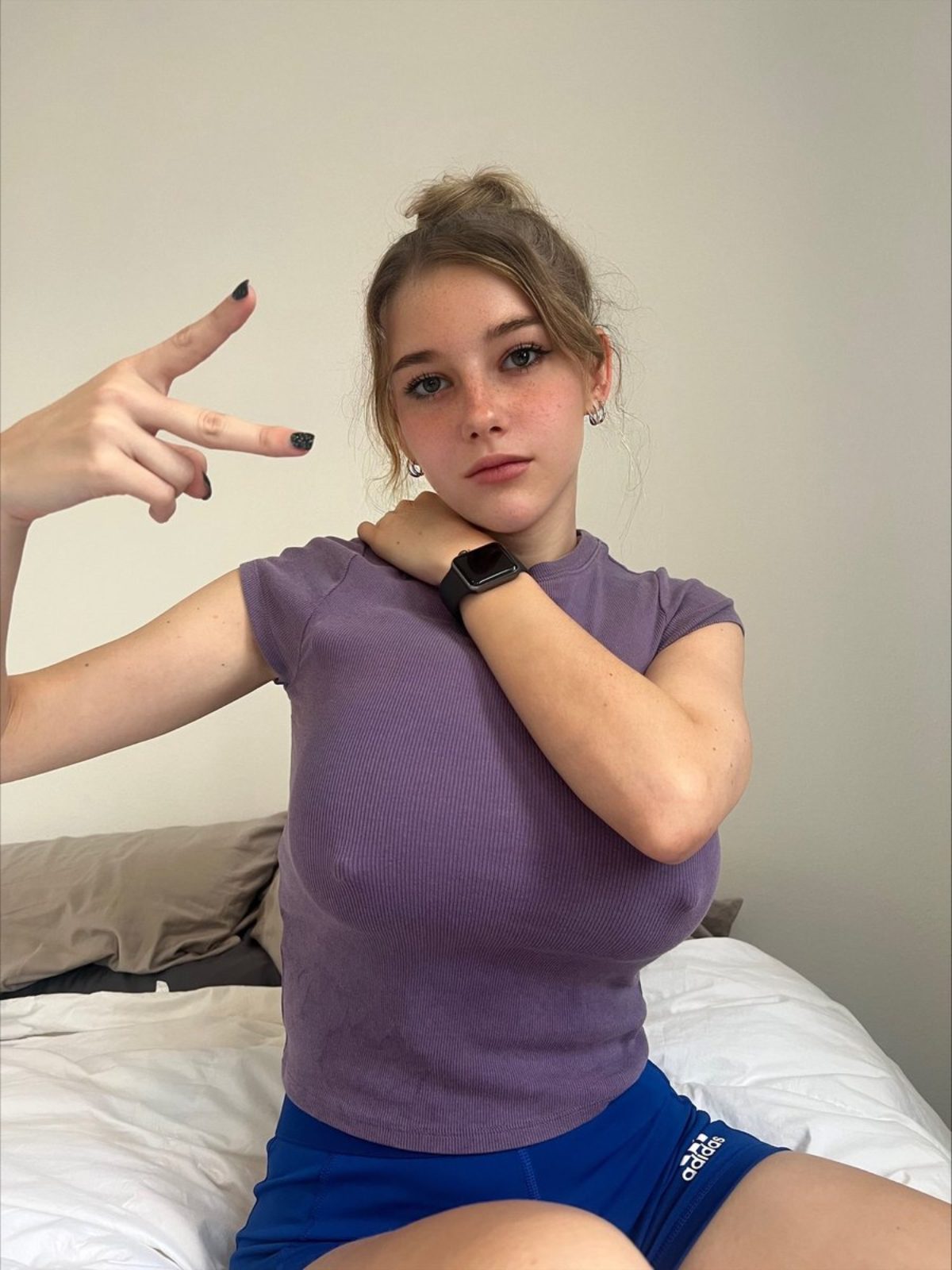Is the digital age truly democratizing content creation, or is it fueling a relentless cycle of fleeting trends and exploitative practices? The online landscape, awash in a sea of self-promotion and curated realities, often obscures the line between genuine expression and calculated clickbait, leaving many users questioning the authenticity of what they consume.
The internet, a vast and ever-evolving ecosystem, offers unprecedented opportunities for individuals to share their lives, perspectives, and talents with a global audience. Platforms like Twitter and Instagram have become powerful tools for self-expression and community building. Yet, this very accessibility has also created an environment where the pursuit of online validation, often measured in likes, shares, and views, can overshadow the intrinsic value of the content itself. The constant pressure to capture attention, to stand out from the noise, can lead creators down a path of sensationalism, blurring the boundaries of what is considered acceptable or ethical. This phenomenon is further complicated by the rise of platforms like OnlyFans, which offer creators direct monetization opportunities, potentially incentivizing the production of content that might otherwise be deemed private or inappropriate. The discussion around content creation has become a labyrinth, and it is crucial to navigate it carefully.
| Category | Details |
|---|---|
| Name | Delia Mandujano (Associated with the online persona "delsbigworld") |
| Online Presence | Active on platforms such as Twitter and Instagram, with content also present on OnlyFans. |
| Content Type | Content is often described as "clickbait." Includes photos and videos. |
| Content Nature | The content includes but is not limited to nude photos and videos. |
| Platforms | OnlyFans, Instagram, Twitter. |
| Associated Terms | Nude leaks, OnlyFans content, potentially explicit or suggestive material. |
| Disclaimer | Content found across many platforms might not be real. |
| Reference | Example Website (Replace with a relevant, reputable source if available) |
The digital world is an arena of both creation and consumption, where individuals curate their online personas and audiences engage with them. This dynamic, however, is not without its complexities. The prevalence of terms like "clickbait" suggests a pervasive awareness among users that the content they encounter may not always align with reality. The use of such tactics indicates a conscious effort to attract attention, often at the expense of genuine authenticity or transparency. This can manifest in various forms, from misleading headlines and exaggerated claims to the selective presentation of information designed to elicit a specific emotional response. The implications of such practices extend beyond individual content creators and audiences; they also contribute to a broader erosion of trust in online spaces.
The rapid proliferation of user-generated content has also contributed to an increasingly blurred line between public and private spheres. Platforms that facilitate the direct monetization of content, such as OnlyFans, have created new economic opportunities for creators. Yet, they have also raised ethical concerns about the commodification of personal experiences and the potential for exploitation. When content creators are incentivized to produce content that capitalizes on their physical appearance, their privacy, or their relationships, it raises questions about the nature of consent, the potential for coercion, and the long-term impact on both the creators and their audiences. The availability of "leaked" content, such as photos and videos that are not intended for public consumption, further compounds these concerns. Such leaks can lead to significant emotional distress, reputational damage, and even legal repercussions for those involved. The ease with which content can be shared and disseminated online exacerbates these risks, making it increasingly difficult to control the narrative or to protect personal information.
The rise of various platforms is also worth noting, each catering to different aspects of online engagement. Services that archive and index webcam content, for example, present users with curated collections of live performances. These platforms, while often offering access to content that might otherwise be difficult to find, also raise ethical questions about the privacy of performers and the potential for non-consensual recordings. The daily updating of content, combined with the use of keywords and hashtags to categorize and promote material, creates a fast-paced environment where trends shift rapidly and content can quickly become obsolete. The focus on "fresh" and "trending" material can further incentivize creators to prioritize quantity over quality, leading to a cycle of fleeting attention spans and a constant pressure to produce new content.
The constant evolution of online content also means that the digital landscape is forever changing, this includes: the types of content, the platforms it is shared on, and the audience it reaches. Within this ever-evolving ecosystem, the ethical considerations around content creation and consumption also shift. What constitutes appropriate content, what privacy rights should be protected, and what responsibilities do platforms have to moderate or filter content? These questions are not easily answered, and the ongoing debate about the role of technology in shaping our lives highlights the complexity of the issues at stake. The use of DMCA (Digital Millennium Copyright Act) notices, terms of service agreements, and content moderation policies is a sign that platforms are aware of the legal and ethical challenges of the online world. But the effectiveness of these measures, the speed at which content spreads, and the ever-present risks of exploitation and abuse, shows that there's still a lot of work to be done.
The intersection of online content creation with the themes of sexuality and intimacy raises additional concerns. When content is explicitly sexual in nature, or when it features nude images or videos, the potential for exploitation, non-consensual distribution, and the violation of privacy becomes even more pronounced. The focus on "sexy" amateur models and the promotion of videos featuring "nasty fucking scenes" highlight the prevalence of content that is designed to titillate and cater to specific desires. While freedom of expression is a fundamental right, the commodification of sexuality and the potential for harm to those involved in creating and distributing such content should not be ignored. The increasing prevalence of this kind of material raises the question of how society can responsibly navigate the complexities of online sexual expression while protecting the rights and well-being of everyone involved.
The ability to "watch and download any content you like" presents a double-edged sword. While offering greater access to a wider variety of material, it also raises serious questions about copyright infringement, the ethical implications of unauthorized distribution, and the potential for the exploitation of creators. The existence of sites that specialize in "leaked" content, or that offer access to content that has been obtained without consent, is particularly concerning. Such sites often operate in a legal gray area, and they can contribute to the spread of harmful material, the violation of privacy, and the erosion of trust within online communities. The constant push to view or download, as seen from the content provided, emphasizes the persistent need for responsible online behavior and the importance of respecting the rights of others.
The rapid proliferation of online content is coupled with a growing awareness of the risks and challenges associated with the digital world. The focus on "best" porn sites, or the promise of finding "free sex videos" highlights the commercial nature of many online spaces. These commercial enterprises often seek to exploit users' desires and fantasies. They often rely on carefully crafted marketing tactics to generate traffic and revenue. It is vital for everyone to be aware of the intentions of any online content provider, and it is crucial to approach content with a discerning eye, always questioning the authenticity of the information and the motives behind the creators.
The continuous flow of content, from OnlyFans and Instagram to various websites, underscores the need for ongoing dialogue about the ethical, legal, and social implications of the digital landscape. As technology advances and new platforms emerge, it is crucial to develop a critical understanding of the dynamics at play and to protect the rights and well-being of individuals. This means promoting media literacy, supporting content creators, and creating safer online spaces where privacy is respected, consent is valued, and exploitation is challenged.


